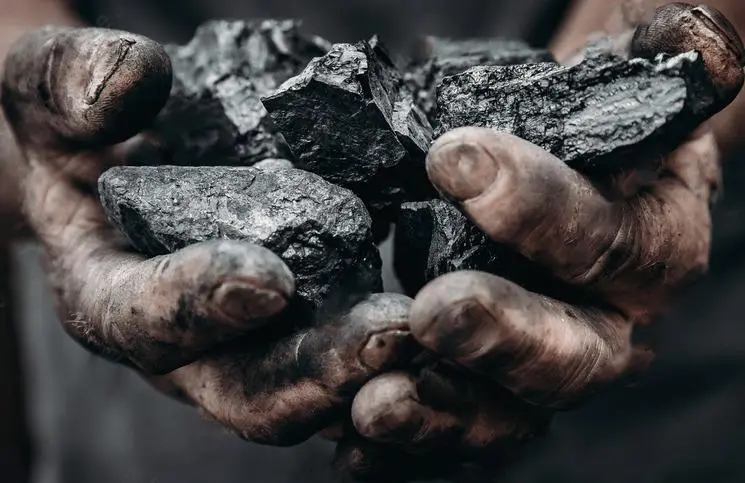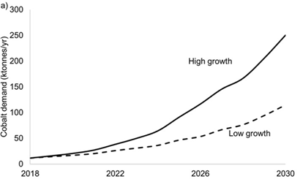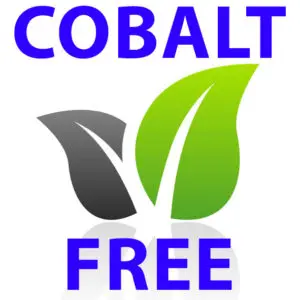Cobalt, conflict minerals and lithium batteries

IS COBALT ESSENTIAL FOR LITHIUM BATTERIES? BUT ABOVE ALL: IS IT A CONFLICT MINERAL?
Today we will talk about cobalt, a mineral well known to lithium battery manufacturers and often associated with conflict minerals.
Cobalt is a metal used in various industrial sectors, as a dye or as an additive, and in particular in lithium batteries it appears as a component inside secondary (rechargeable) lithium cells. It is one of the best candidates for a cell’s cathode due to its excellent thermal stability and high energy density.
Cobalt is not found in a pure metallic state, but only as a mineral, and is not extracted alone but as a by-product of copper or nickel extraction. The most important cobalt minerals are heterogenite, cobaltite, erythrite, glaucodotus and skutterudite. The largest cobalt producers in the world are the Democratic Republic of the Congo, China, Zambia, Russia and Australia. Of all these countries, the Democratic Republic of the Congo is by far the largest producer, holding over 95% of the world’s extractions: unfortunately this country, rich in minerals, is also a country bled by internal conflicts and wars.
WHAT IS A CONFLICT MINERAL? A conflict mineral is a mineral that is mined in countries that are affected by armed conflict. This definition first appeared in the late 1990s, through discussion and UN conferences concluded with resolutions 1533 and I698.97.
The United States has also implemented an ad hoc law, called the U.S. CONFLICT MINERAL LAW which to date establishes the materials subject to be classified as CONFLICT MINERALS:
- pond
- tantalum
- tungsten
- gold
Therefore, although Cobalt is generally associated with conflict minerals because it is mainly mined in the Democratic Republic of the Congo, it is asserted that this does not constitute truth. In any case, it is hypothesized and documented that the working conditions in the mining mines do not comply with codes of ethics and conduct such as those to which it is customary to correspond in Western countries.
However, it is reiterated that Cobalt, however, is not a conflict mineral, but this classification has repeatedly been discussed as its extraction methods for electric batteries have often violated human rights. There are many testimonies, in fact, of people forced to spend most of their days in tunnels to extract the metal, often with negligible wages.
MORE ETHICAL LITHIUM BATTERIES
Recently, various lithium battery companies have taken steps to improve extraction conditions or to embark on a Cobalt-free path.
In addition to individual companies, in 2017 the European Commission presented the Regulation 2017/821, in force since January 1, 2021, to make the extraction of conflict minerals more ethical. In anticipation of the implementation of the Regulation, the European Commission has set up a portal, called “Due Diligence ready!”. This “focuses on tin, tantalum, tungsten and gold, but also includes other minerals and metals, including battery raw materials”, including, without directly naming it, also Cobalt.
It is added that the demand for the metal is estimated to increase up to 70% by 2030, risking to aggravate the human conditions linked to its extraction, although ethical behavior is required. In summary, Cobalt is not a conflict mineral, but its mining methods in a state of armed conflict and increasing demand make it one of the most critical components for lithium batteries.
 THE CHOICE OF ALIANT BATTERY
THE CHOICE OF ALIANT BATTERY
In light of the above considerations, Aliant Battery has embarked on a path of development of the lithium cells used in its lithium batteries, oriented towards an ethical and environmental choice.
The process, which began in 2020 and completed in November 2021, allows us to offer the market a range of rechargeable lithium batteries based on LFP technology, and intended for stationary and traction use, completely Cobalt Free, without any reduction in performance or in terms of density. of energy or in terms of duration.
The close partnership with cell manufacturers has made it possible to develop alternative solutions in terms of chemistry, completely renouncing the presence of cobalt.
The reason for this choice is due both to the need to reduce the environmental and social impact of Aliant Battery lithium batteries and to avoid giving side to criticisms, often improper, related to the current global production chain of various lithium cells.
So, starting January 1, 2022, all Aliant lithium batteries produced are completely Cobalt Free.



